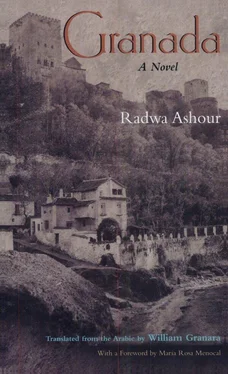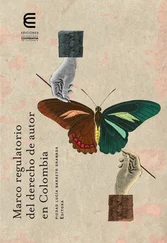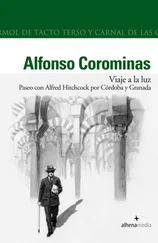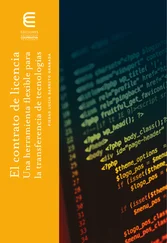Radwa Ashour - Granada
Здесь есть возможность читать онлайн «Radwa Ashour - Granada» весь текст электронной книги совершенно бесплатно (целиком полную версию без сокращений). В некоторых случаях можно слушать аудио, скачать через торрент в формате fb2 и присутствует краткое содержание. Год выпуска: 2003, ISBN: 2003, Издательство: Syracuse University Press, Жанр: Современная проза, Историческая проза, на английском языке. Описание произведения, (предисловие) а так же отзывы посетителей доступны на портале библиотеки ЛибКат.
- Название:Granada
- Автор:
- Издательство:Syracuse University Press
- Жанр:
- Год:2003
- ISBN:9780815607656
- Рейтинг книги:5 / 5. Голосов: 1
-
Избранное:Добавить в избранное
- Отзывы:
-
Ваша оценка:
- 100
- 1
- 2
- 3
- 4
- 5
Granada: краткое содержание, описание и аннотация
Предлагаем к чтению аннотацию, описание, краткое содержание или предисловие (зависит от того, что написал сам автор книги «Granada»). Если вы не нашли необходимую информацию о книге — напишите в комментариях, мы постараемся отыскать её.
Granada — читать онлайн бесплатно полную книгу (весь текст) целиком
Ниже представлен текст книги, разбитый по страницам. Система сохранения места последней прочитанной страницы, позволяет с удобством читать онлайн бесплатно книгу «Granada», без необходимости каждый раз заново искать на чём Вы остановились. Поставьте закладку, и сможете в любой момент перейти на страницу, на которой закончили чтение.
Интервал:
Закладка:
Saad was at a loss as to what happened next when his master suddenly jumped up and hurriedly dashed away. He looked around and in a Mash caught sight of Abu Mansour with a thick stick in his hand and running amok. When had Abu Mansour come inside the bath, he wondered, and where did the stick come from? All he could think was, What happened? Abu Mansour was howling one threat after another.
“Ibn Abi Ghassan s riding mule is more honorable than you and a thousand like you put together, you dog, you son of a dog!”
The master’s loincloth fell off as he ran away, terrified of the stick Abu Mansour was brandishing as he chased him. Abu Mansour then screamed out, “It’s your mother who has fallen, not Granada, you raven of evil omen. Get out of my bathhouse or I’ll kill you.”
The bathers all jumped up and stood between Abu Mansour and the man he was about to strike. Men from inside the baths poured out naked as the day they were born, and those sitting or resting on the benches lost their towels in their forward rush to see what was happening. Saad stood there frozen in a state of shock, aware that he should go and help his master but unable to move a muscle, as though his feet were plastered to the floor.
His mind drifted. To wander aimlessly about in the daytime and greet the night sitting in the corner of a mosque reeling from the pangs of hunger that only sleep could relieve, wrapped in a coarse woolen cloak, what’s new about that?
That was not the first time Saad found himself without any source of sustenance, as he thought about the days when his future appeared to him like a winter morning enveloped in a thick fog in which you could hardly see your own footsteps. Those days he used to ruminate over his past, the distant past when the branch grew freely, and the not-so-distant past when it was snapped off the tree, blown about by the stormy winds. And the more he tried to recall what had happened, the more the details came back to him, ones that had slipped his mind. He was astonished that he could forget, but more astonished that these memories came back to him with a sudden new clarity, and after thinking about it somewhat, he became certain that nothing was lost, that the human mind was a wondrous treasure chest, and that however deeply lodged in the head, it preserved things that couldn’t be counted or weighed: the scent of the sea, his mother’s face, pale shafts of sun that filtered through the green vine leaves moistened by drops of rain, threads of silk on his father’s loom, his grandfather’s hacking morning cough, the laugh of the little girl, the taste of a fresh green almond, a broken jar seeping olive oil, or a solitary rosary bead that had rolled behind the chest of drawers where he used to hide.
After three days of looking for work and sleeping at night in the mosque, Saad thought of asking Abu Mansour for help. “I left my master, or rather he fired me. I’m looking for work.”
“Do you know the Paper Makers’ Quarter?”
“Yes, I know it.”
“Go there and ask for Abu Jaafar’s shop. Tell him I’m the one who sent you. If he can’t find you any work, come back to me.”
Abu Jaafar spoke to Saad while he worked: “You should observe closely everything Naeem and I do. God willing, you’ll learn quickly. Can you read and write?”
“No.”
“That’s another problem we’ll have to deal with. Naeem, come over here. This is Saad who comes to us from Malaga. He’s going to be working with you. You have to help him. I trust you’re a good teacher?”
Naeem smiled, proud of the confidence his patron bestowed on him in assigning him such a task. However, Saad wasn’t so happy, as he saw in Naeem a boy with a frail body and hazel eyes that glistened with sparks of shrewdness. Although no older than thirteen, Saad felt as though he were a man. Hadn’t his body developed and his voice dropped, and the lines of his mustache grown in? What could this pale, mousy kid possibly teach him?
That evening Saad’s feelings toward Naeem were reinforced and his annoyance with him increased. He was a chatterbox who went on endlessly about nothing and everything. He asked him about Malaga, about his father and mother, how he came to Granada all by himself, why he hadn’t stayed with them, and where did he work before coming to Abu Jaafar. He never tired of asking questions, and Saad had no desire to reveal anything to him, so he responded with terse, evasive answers.
When Naeem realized he was getting nowhere with Saad, he began to talk about himself. He told him that he didn’t know or remember his parents. In fact, the only person he remembers is the old woman who raised him, and when she died he had nothing but the streets, that is, until he met Abu Jaafar. “You know, Saad, I’m not afraid of roaming the streets at night, nor of stray dogs, nor of the head of the city police who struts about with his protruding belly like a sack of flour. Nor do I fear the evil spirits. What I do fear, though, is Abu Jaafar falling ill or something bad happening to him.”
As Naeem spoke a look of sadness suddenly appeared on his face. Moments of silence passed before he continued to talk. “Abu Jaafar took me off the streets and brought me into his home. He asked his wife Umm Jaafar to bathe me. As soon as she poured the hot water over my head, I screamed at the top of my lungs and leaped away with every intention of leaving that house. But she was able to grab hold of me, and then she squatted on the floor and forced me to sit down. She wrapped her left arm around my chest and her two legs around my waist, and the only thing I could do was holler for help. The more I raised my voice, the more she scrubbed my body harder and harder, until I thought I was going to die right in front of her! She spent the whole day washing me.”
“The whole day?”
“Well, that’s what it seemed like at the time,” laughed Naeem.
3
The muezzin had not yet called out the early morning prayer nor had the neighbor’s rooster screeched its first crow when one of Alhambra’s guards, whose services were recently terminated, came running out onto the streets, shouting out words that seemed to have no logical connection, some of them clear and others totally incomprehensible. Through his high-pitched screaming you could finally make out that he was saying that the Christian troops would be entering Alhambra today to receive its keys. Abu Jaafar woke up and counted the days, first in his head and then with his fingers, and added up thirty-seven. He sat up in bed. He heard the rooster’s crow, once, twice, and then a third time. The muezzin then called out the prayer. The day began and the hours passed. The voice that awakened Abu Jaafar awakened Saad as well. He sat up despondently in the darkness of the shop, not knowing whether what he heard was a dream or real. He stood up, put on his shoes, wrapped himself in his cloak, and went out into the street.
Saad followed the winding alleys that lead toward the Gate of the Flour Merchants. As he passed it the red hill loomed before him, blurred by the purple haze of the early morning. The castles above it stood erect, protected by walls and towers. Perhaps it was all a nightmare. He reached the Judges’ Bridge and crossed over to the other side of the river, then came back and crossed the bridge once again and headed in the direction of Albaicin. He stared into the river. The Darro flowed in God’s protection, and the fig tree from which he ate fresh fruit only a few months ago was as it always was, still standing. Its branches had shed their leaves but were still intact. He looked up at the top of the road, which was still deserted. He headed toward Steamroller’s Bridge and sat on a stone bench by the bank of the river. He waited. He saw the horizon from beyond the castles changing colors with the rosy hue of morning, a misty purple tinged with the blueness of early dawn. Then it lit up in full violet. The sun was about to rise, and when it did, it did so in utter silence, made more glorious by the chirping of the many species of birds. The day broke, and Alhambra came into full view in all its splendid detail: the sharply honed impenetrable walls; the lofty towers; the imposing palaces; the palm and cypress trees, luxuriant and majestic. He was about to turn back and make his way to the shop when he heard a sound in the distance. He pricked up his ears. He was sure he heard something. The sound was distant but it was getting closer. Soon, he was able to decipher the din of beating drums, the blowing of bugles, and the ringing of gunfire. Are they coming to take over Alhambra? Are they advancing from the direction of the east where they can’t be seen? Is what the guard said true? He stood there petrified as his eyes followed the rays of the sun. The sound of the music was becoming more distinct, louder, and it kept pace with the rhythm of his beating heart. In spite of the bitter cold, a hot flash raced through his body.
Читать дальшеИнтервал:
Закладка:
Похожие книги на «Granada»
Представляем Вашему вниманию похожие книги на «Granada» списком для выбора. Мы отобрали схожую по названию и смыслу литературу в надежде предоставить читателям больше вариантов отыскать новые, интересные, ещё непрочитанные произведения.
Обсуждение, отзывы о книге «Granada» и просто собственные мнения читателей. Оставьте ваши комментарии, напишите, что Вы думаете о произведении, его смысле или главных героях. Укажите что конкретно понравилось, а что нет, и почему Вы так считаете.












